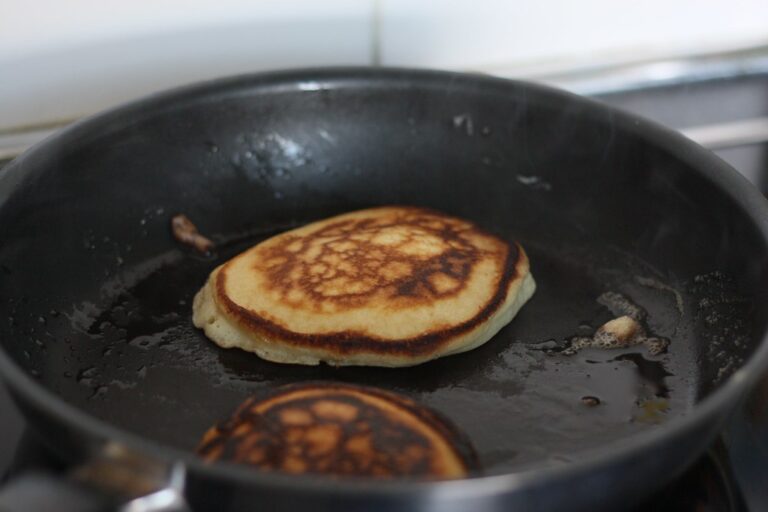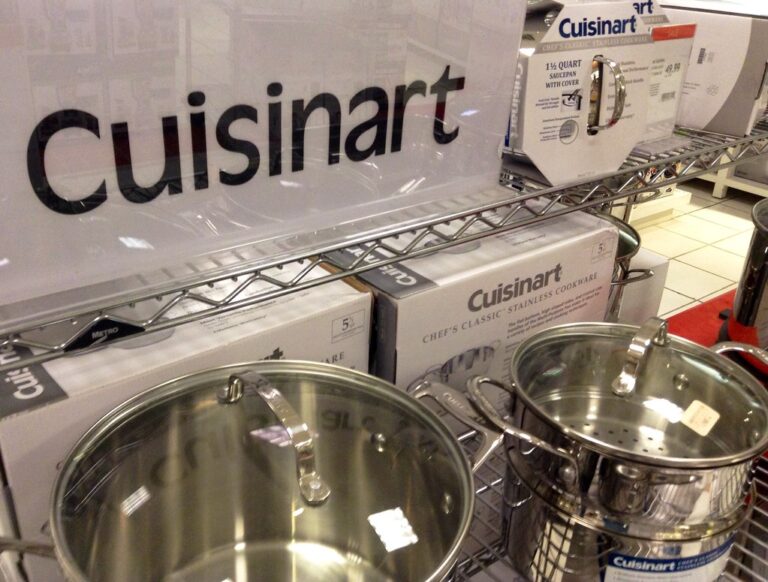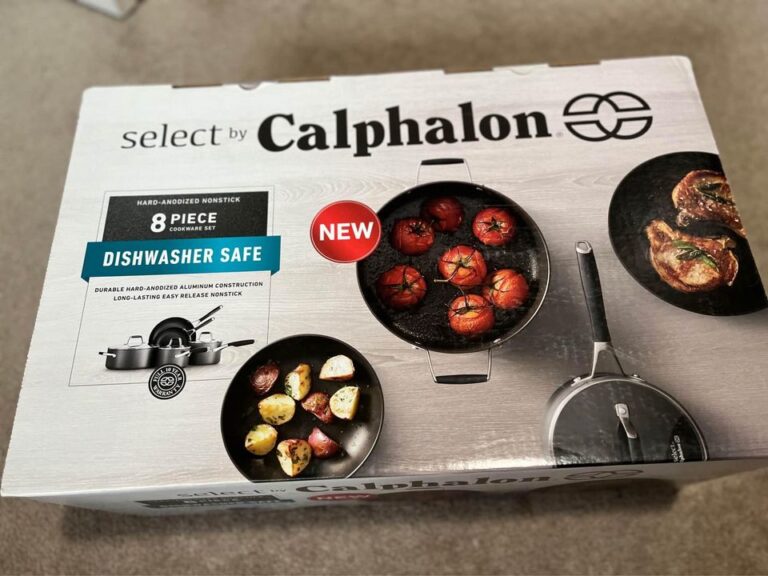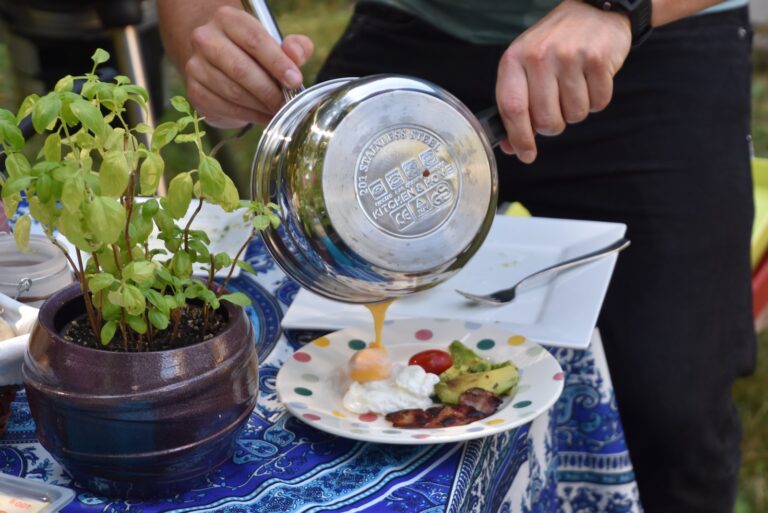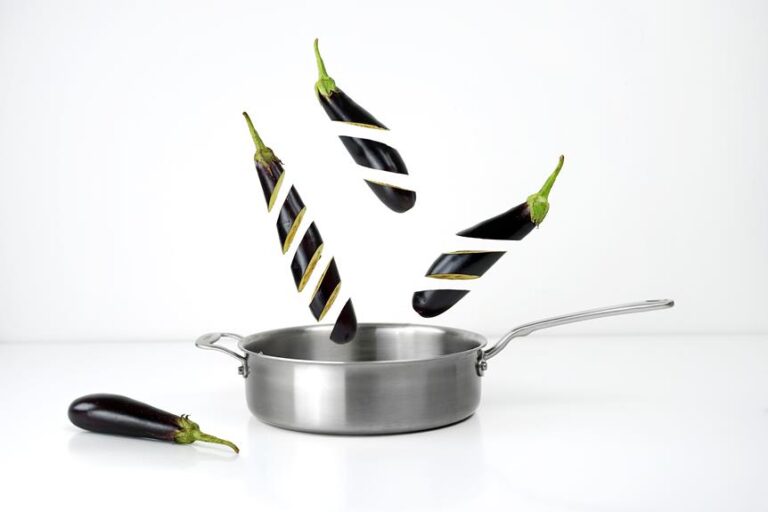I’ve always loved cooking with cast iron pans. Recently, however, I heard a rumor that they might be illegal on the West Coast. Curiosity got the best of me, so I decided to dive into this topic and get some answers.
In this article, we’ll explore the history of cast iron pans on the West Coast. We’ll understand the regulations surrounding them, consider their health implications, and even discuss their environmental impact. So let’s find out if my beloved cast iron pans are really against the law!
Key Takeaways
- Cast iron pans have been used on the West Coast since the early 1800s and are still cherished for their heat retention and flavor profile.
- There are no specific regulations against using cast iron pans on the West Coast, but it is important to check with local authorities or homeowners association for any restrictions.
- There are no significant health risks associated with using cast iron pans, and they can even contribute trace amounts of dietary iron to food.
- While cast iron pans have a significant environmental impact due to high carbon emissions during production, there are eco-friendly alternatives like stainless steel and ceramic cookware.
The History of Cast Iron Pans on the West Coast
The history of cast iron pans on the West Coast dates back to the early 1800s. In those days, pioneers and settlers relied heavily on cast iron pans for cooking their meals. These sturdy and versatile pans were perfect for the rugged conditions of the frontier.
As time went on, cast iron pans became a staple in many homes across the West Coast. They were used for everything from frying bacon to baking cornbread. The durability of cast iron made it ideal for outdoor cooking as well, such as camping trips or barbecues.
Even today, cast iron pans continue to be cherished by many cooks who appreciate their ability to retain heat and create delicious meals with a unique flavor profile.
Understanding the Regulations Surrounding Cast Iron Pans
Understanding the regulations surrounding cast iron cookware can help clarify whether it is permissible to use certain types of pans on the west coast. As someone who loves cooking with cast iron, I wanted to make sure I was following all the rules correctly.
After doing some research, I discovered that there are no specific regulations against using cast iron pans on the west coast. However, it is important to note that certain local ordinances may restrict outdoor open fires or prohibit certain types of cooking equipment in specific areas.
It’s always a good idea to check with your local authorities or homeowners association for any restrictions that may be in place. Overall, as long as you abide by any local rules and regulations, cooking with cast iron pans should not be an issue on the west coast.
Exploring the Health Considerations of Cast Iron Pans
I’ve always been a fan of cooking with cast iron pans. Recently, however, I’ve started to wonder about the health risks associated with using them. Are there any potential dangers I should be aware of?
Additionally, I’d like to explore alternative cookware options that can provide similar benefits without the same potential drawbacks.
Health Risks of Cast Iron
Contrary to popular belief, there aren’t significant health risks associated with using cast iron pans. Many people think that cooking with cast iron can lead to excessive iron intake, but in reality, the amount of iron transferred to food is minimal and unlikely to cause any harm.
In fact, using cast iron pans can have some health benefits. They retain heat well, distributing it evenly and allowing for efficient cooking. Additionally, while the amount is small, cooking with cast iron can contribute trace amounts of dietary iron to your daily intake.
Furthermore, using cast iron pans eliminates the need for non-stick coatings that may contain harmful chemicals such as PFOA. By following proper seasoning and cleaning techniques, you can enjoy the advantages of cooking with cast iron without worrying about significant health risks.
Alternatives to Cast Iron?
Looking for alternatives to cast iron? There are several options available that offer similar benefits and versatility in the kitchen.
One popular alternative is stainless steel cookware. It is durable, resistant to rust and corrosion, and heats up quickly and evenly.
Another option is non-stick cookware, which makes cooking and cleaning a breeze.
Ceramic cookware is also gaining popularity due to its non-toxic nature and ability to retain heat well.
For those who prefer a lighter option, aluminum cookware can be a good choice as it conducts heat efficiently.
Lastly, copper cookware provides excellent heat conductivity and precise temperature control, making it ideal for professional chefs.
With these alternatives, you can still enjoy delicious meals without the weight or maintenance of cast iron pans.
Cast Iron Pans and Environmental Impact on the West Coast
Cast iron pans may have a significant environmental impact on the West Coast due to their high carbon emissions during production. As someone who cares about the environment, I believe it’s important to consider more sustainable options. Here are some reasons why cast iron pans can be detrimental:
- Production process releases harmful greenhouse gases.
- Carbon dioxide emissions contribute to climate change.
- Harmful pollutants are released into the air and water.
Considering alternatives that are eco-friendly is crucial in reducing our carbon footprint. Some sustainable options include:
- Stainless steel cookware
- Durable and long-lasting
- Energy-efficient
- Ceramic cookware
- Non-toxic and chemical-free
- Energy-saving due to even heat distribution
Benefits of Using Cast Iron Pans in West Coast Cooking
Using cast iron pans in cooking on the West Coast can provide various benefits, such as excellent heat retention and even distribution. I love using my trusty cast iron pan to cook everything from pancakes to steaks. The heat retention of cast iron allows for even cooking and helps to create a beautiful crust on meats. Additionally, the even distribution of heat ensures that food is cooked evenly throughout. Another benefit of using cast iron pans is their durability and longevity. With proper care, these pans can last for generations, making them a great investment for any kitchen. To illustrate the benefits further, here’s a table:
| Benefit | Description |
|---|---|
| Excellent Heat Retention | Keeps food warm for longer periods |
| Even Distribution | Ensures consistent cooking temperatures |
| Durability | Lasts for generations with proper care |
| Versatility | Can be used on stovetop, oven, or grill |
I highly recommend incorporating cast iron pans into your West Coast cooking repertoire for these fantastic advantages.
Debunking Myths: Cast Iron Pans and Toxicity
I’ve always loved cooking with cast iron pans. But I’ve heard some concerns about their safety and potential health risks. However, after doing some research, I have found that most of these worries are actually debunked myths.
In fact, using cast iron pans can not only be safe but also provide numerous benefits for our health and help us cook with confidence.
Cast Iron Safety
Cooking with cast iron pans is generally considered safe as long as proper care and maintenance are followed. I personally love using my cast iron pan for its even heat distribution and versatility in the kitchen. Here’s why cast iron pans are safe:
- Seasoning: The seasoning process creates a natural non-stick surface that prevents food from sticking to the pan.
- Heat retention: Cast iron pans retain heat well, allowing for even cooking and temperature control.
- Preheating: Preheating your cast iron pan before cooking helps to prevent sticking and ensures even cooking.
- Oiling: Adding a small amount of oil to your cast iron before cooking helps to create a smooth surface and prevents food from sticking.
Health Concerns Debunked
Contrary to popular belief, there are no health concerns associated with cooking in cast iron pans. Many people worry about the potential dangers of using cast iron cookware due to its heavy metal content and the possibility of leaching into food. However, research has shown that cooking in well-seasoned cast iron pans is completely safe.
To further debunk any misconceptions, here is a table highlighting the benefits and facts about cooking with cast iron:
| Benefits | Facts |
|---|---|
| Natural non-stick surface | Cast iron pans can be seasoned to create a natural non-stick surface without the use of chemical coatings. |
| Iron supplementation | Cooking in cast iron can actually increase your dietary intake of iron, which is essential for red blood cell production. |
| Even heat distribution | Cast iron retains and distributes heat evenly, making it ideal for searing meats and achieving consistent results. |
Cooking With Confidence
After debunking the health concerns surrounding cast iron pans, I feel more confident than ever to continue cooking with them. There’s something nostalgic and satisfying about using a piece of cookware that has withstood the test of time. Plus, there are numerous benefits to cooking with cast iron pans.
Here are a few reasons why I love cooking with confidence using my trusty cast iron pan:
- Superior heat retention:
Cast iron pans distribute heat evenly, ensuring that my food cooks consistently. They also retain heat well, keeping my dishes warm even after removing them from the stove. - Versatility in the kitchen:
Whether it’s searing a juicy steak or baking a delicious cornbread, cast iron pans can handle it all. I appreciate their ability to go from stovetop to oven without any fuss.
Cooking with confidence means embracing the timeless beauty of cast iron pans and enjoying their many advantages in the kitchen.
The Role of Cast Iron Pans in West Coast Culinary Culture
Cast iron pans are a staple in West Coast culinary culture, commonly used for their versatility and heat retention. I grew up watching my grandmother effortlessly cook on her trusty cast iron skillet, and it quickly became clear to me that these pans were essential in the kitchen. Not only do they distribute heat evenly and retain it for longer periods of time, but they also add a unique depth of flavor to dishes. In fact, many professional chefs and home cooks alike swear by cast iron pans for everything from searing steaks to baking cornbread. To illustrate just how versatile these pans can be, here’s a table showcasing five popular dishes that can be made using cast iron pans:
| Dish | Cast Iron Pan Use |
|---|---|
| Steak | Searing |
| Cornbread | Baking |
| Frittata | Frying |
| Pizza | Crisping |
| Apple Tart | Caramelizing |
As you can see, cast iron pans have a wide range of uses and play an integral role in West Coast cooking. They’re definitely worth adding to your kitchen arsenal!
Alternatives to Cast Iron Pans on the West Coast
If you’re looking for alternatives to cast iron pans in the West Coast culinary scene, there are a few options available.
As a chef who loves experimenting with different cookware, I’ve discovered some fantastic alternatives that offer similar benefits and even unique features. Here are a couple of options to consider:
- Stainless Steel:
- Excellent heat distribution
- Easy to clean and maintain
- Carbon Steel:
- Lightweight yet durable
- Provides excellent heat retention
Both stainless steel and carbon steel pans are popular choices among chefs on the West Coast. They offer versatility and durability, making them ideal for various cooking techniques.
Whether you’re searing a steak or sautéing vegetables, these alternatives can deliver exceptional results while adding their own distinct touch to your dishes.
How to Properly Season and Maintain Cast Iron Pans
To properly season and maintain your cast iron pan, you’ll want to regularly apply a thin layer of oil after each use to prevent rusting and maintain its non-stick surface.
After cooking with my cast iron pan, I make sure to clean it thoroughly with warm water and a gentle brush. Once it’s dry, I pour a small amount of vegetable oil onto the surface and spread it evenly using a paper towel or cloth. This helps create a protective barrier against moisture and keeps the pan in good condition.
Additionally, I store my cast iron pan in a dry place to avoid any potential moisture buildup that could lead to rusting.
Legal Implications of Cast Iron Pans on the West Coast
I’m going to discuss the regulations surrounding cast iron pans on the West Coast. I’ll also address any potential health concerns associated with using them.
Additionally, I’ll explore alternative options for those who may not be able to use cast iron pans due to these regulations or health reasons.
It’s important to stay informed about these topics in order to make the best decisions for our cooking and overall well-being.
Cast Iron Pan Regulations
Cast iron pans aren’t illegal on the west coast, but there may be regulations regarding their use. As someone who loves cooking with cast iron, I’ve done some research on the subject and found that while these regulations exist, they are not overly restrictive. Here are a few key points to consider:
- Cooking Restrictions:In certain areas, open flames or outdoor cooking with cast iron pans may have limitations due to fire safety concerns. Some residential communities or apartment complexes might have specific rules about using cast iron pans in shared spaces.
- Maintenance Guidelines: There could be guidelines on proper cleaning and maintenance of cast iron pans to prevent the spread of foodborne illnesses. Local health departments might require regular inspections or certifications for establishments that use cast iron cookware.
Health Concerns With Cast Iron
There are health concerns that should be considered when using cast iron cookware. While cast iron pans have many benefits, such as excellent heat retention and durability, they can also pose risks to our health if not used properly.
One concern is the potential for iron overload in our bodies. Cooking acidic foods in cast iron can increase the amount of iron leached into the food, which may be problematic for individuals with hemochromatosis or other conditions.
Another issue is the need to season and maintain cast iron pans correctly to prevent rust and avoid ingesting harmful particles. It’s important to clean them thoroughly after each use and re-season regularly.
Lastly, some people may experience allergic reactions to certain ingredients used in pre-seasoned or enameled cast iron pans. Therefore, it’s crucial to be aware of these health considerations when using cast iron cookware.
Alternatives to Cast Iron?
When considering alternatives to cast iron cookware, it’s important to explore options that meet your specific cooking needs and preferences. Here are a few alternatives I’ve found:
- Stainless Steel:
- Provides even heat distribution and is easy to clean.
- Great for searing meat or sautéing vegetables.
- Nonstick Coated:
- Ideal for low-fat cooking as it requires minimal oil.
- Perfect for delicate foods like eggs or fish.
Each of these alternatives has its own advantages and disadvantages. Stainless steel pans are durable and versatile but may not retain heat as well as cast iron. Nonstick coated pans offer convenience but may need replacing over time if the coating wears off.
Ultimately, the choice depends on what you prioritize in your cooking experience, whether it’s durability, even heat distribution, or ease of cleaning.
Conclusion
In conclusion, cast iron pans are not illegal on the West Coast. While there may be regulations surrounding their use in certain areas, they continue to be a popular choice for cooking due to their durability and heat retention properties.
Additionally, using cast iron pans can contribute to the unique culinary culture of the West Coast. However, it is important to properly season and maintain these pans for optimal performance.
Overall, cast iron pans remain a valuable tool in West Coast kitchens.
